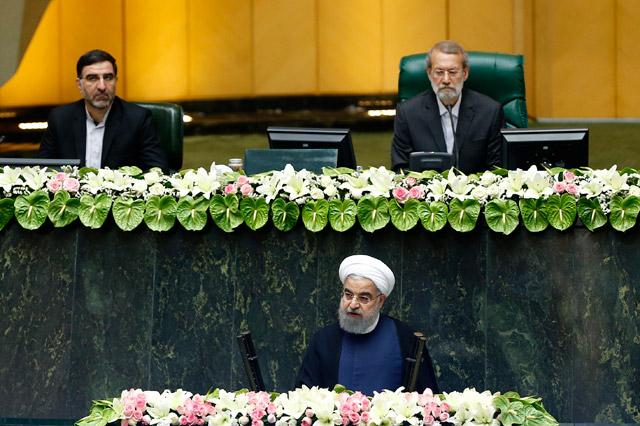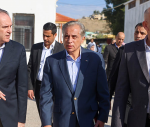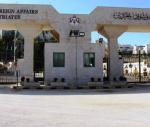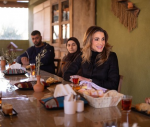You are here
Iran's Rouhani under fire for male-only Cabinet
By AFP - Aug 08,2017 - Last updated at Aug 08,2017
TEHRAN — Iranian President Hassan Rouhani put forward a new cabinet line-up on Tuesday that was immediately criticised by reformists for its lack of women or young people.
The ministerial line-up, which must still be approved by parliament, also lacked minorities and actually increased the average age compared to Rouhani's first term.
"The lack of women ministers shows we are treading water," Shahindokht Mowlaverdi, Rouhani's outgoing vice president for women's affairs, told the Etamad daily after news of the line-up was leaked.
Many on social media said Rouhani, a 68-year-old moderate cleric, who whipped up reformist support to secure reelection in May, was failing to keep his campaign promises of greater diversity.
"The people's message in the last two elections has had little reflection in the proposed cabinet," tweeted Mohammad Karroubi, son of jailed opposition leader Mehdi Karroubi.
"How can you speak of equality of the entire nation and ignore women and religious minorities?" he asked.
The head of the reformist camp in parliament, Mohammed Reza Aref, also voiced his disappointment: "We expected at least one woman to be nominated," he said.
Aref noted, according to Iranian media, most of the members of the delegation that accompanied EU foreign policy chief, Federica Mogherini, to Iran on Saturday for Rouhani's inauguration in parliament were women — saying this was very meaningful.
First Vice President Eshagh Jahanguiri echoed him in a tweet saying: "We should increase the number of women, minorities and youths in positions of responsibility."
There were few major changes in the Cabinet, with the key figures in Iran's efforts to rebuild ties with the West — Foreign Minister Mohammad Javad Zarif and Oil Minister Bijan Namdar Zanganeh — retaining their positions.
Average age of 58
The one surprise was the appointment of Mohammad Javad Azari Jahromi, a 35-year-old engineer and by far the youngest addition, who is set to become telecommunications minister.
But even with his appointment, which puts an opponent of censorship at the heart of government, the average age of the Cabinet remains at 58.
Sunnis, who make up around 10 per cent of the Shiite-majority nation, were also left out of the new government.
Rouhani did replace the defence minister, Major General Hossein Dehghan, with his deputy, General Amir Hatami — the first time in more than two decades that the post has been filled by someone from the regular army rather than the elite Revolutionary Guards.
And the deputy economy minister, Masoud Karbasian, also replaced his boss, Ali Tayebnia.
Analysts say Rouhani will stick with his general push to increase foreign investment and improve the management of the stagnant economy.
Over the past week, the expected lack of women has been a focus of criticism by reformists, who say Rouhani is probably bowing to pressure from the religious establishment.
In his first term, Rouhani did have three women among his large cohort of vice presidents, who do not require parliamentary approval.
Ironically, the sole female minister since Iran's 1979 Islamic revolution came under Mahmoud Ahmadinejad, Rouhani's hardline predecessor, whose health minister Marzieh Dastjerdi served between 2009 and 2013.
Rouhani sailed to victory in May over hardliner Ebrahim Raisi with the backing of reformists after vowing to improve civil liberties and rebuild ties with the West.
With no official parties in parliament, he must negotiate among a shifting pattern of political factions, none of which holds a definitive majority of the 290 seats.
He is known to have coordinated closely with other power-brokers, including supreme leader Ayatollah Ali Khamenei, the Revolutionary Guards and the judiciary.
Related Articles
TEHRAN — Iran's President Hassan Rouhani warned the US against tearing up the nuclear deal as he was inaugurated for a second term Saturday,
LONDON — Instead of blaming others Supreme Leader Ayatollah Ali Khamenei should take responsibility for Iran’s economic and political
TEHRAN — Prominent but as yet unnamed reformists are among more than 1,400 initially rejected candidates now eligible to contest Iran's parl
















